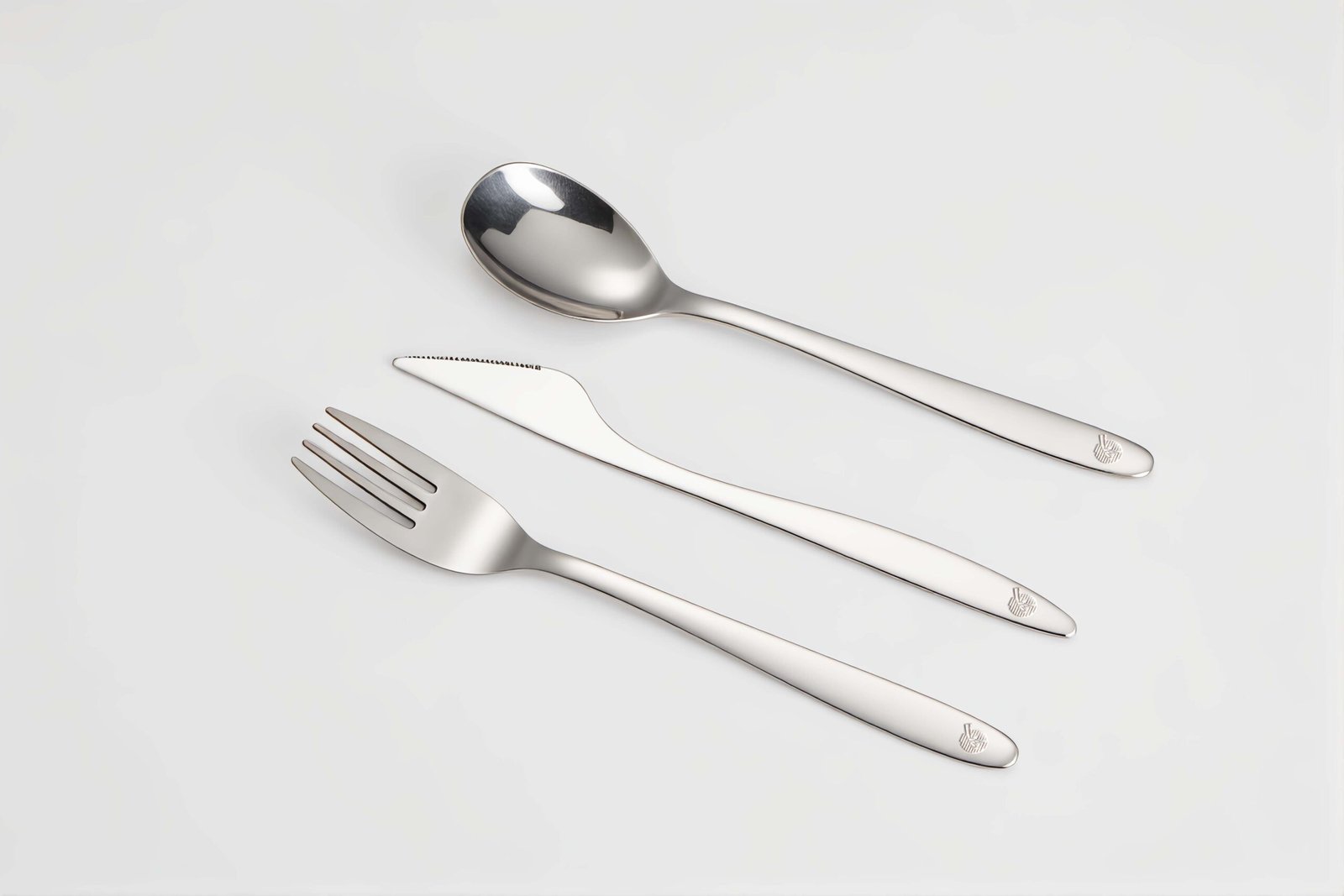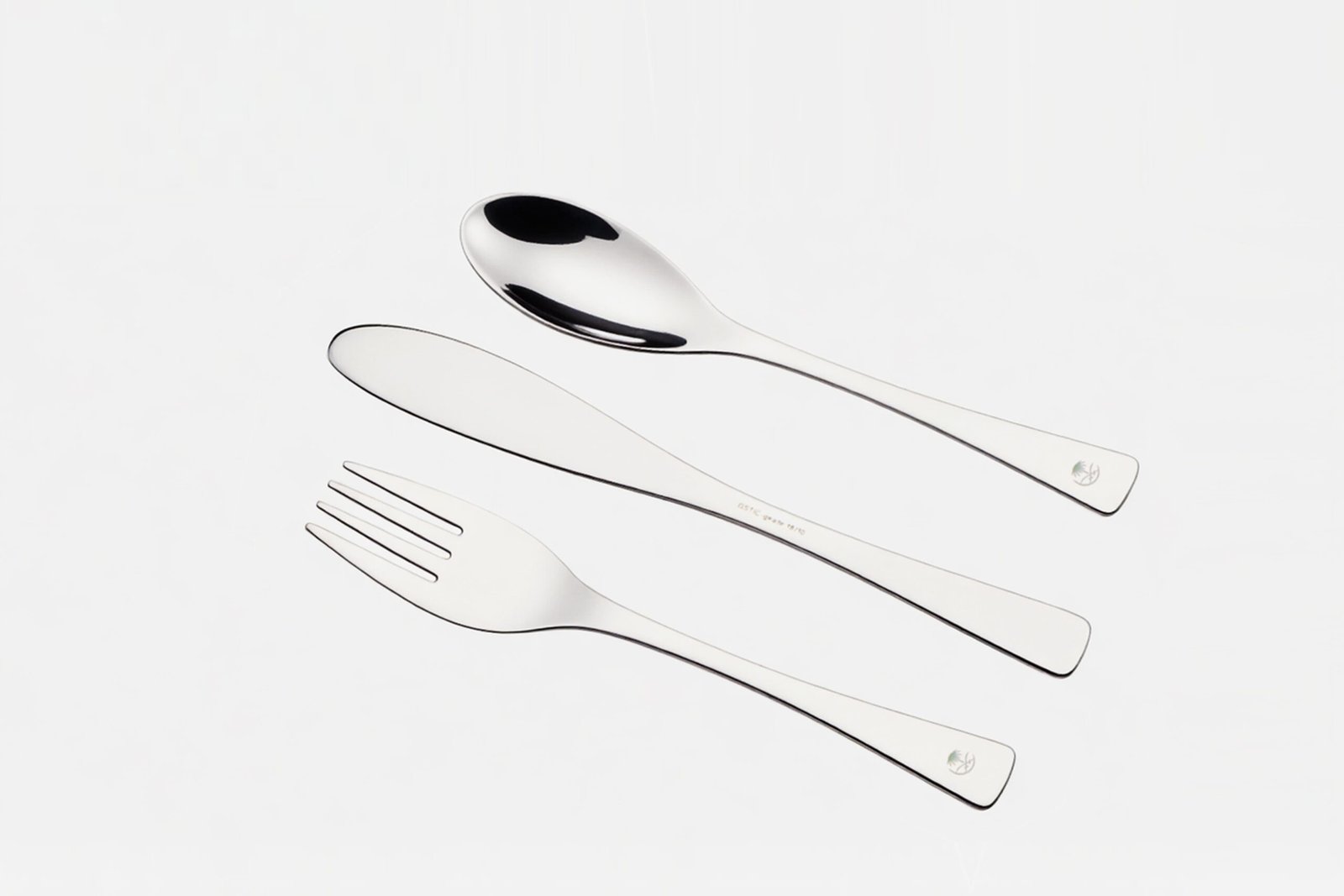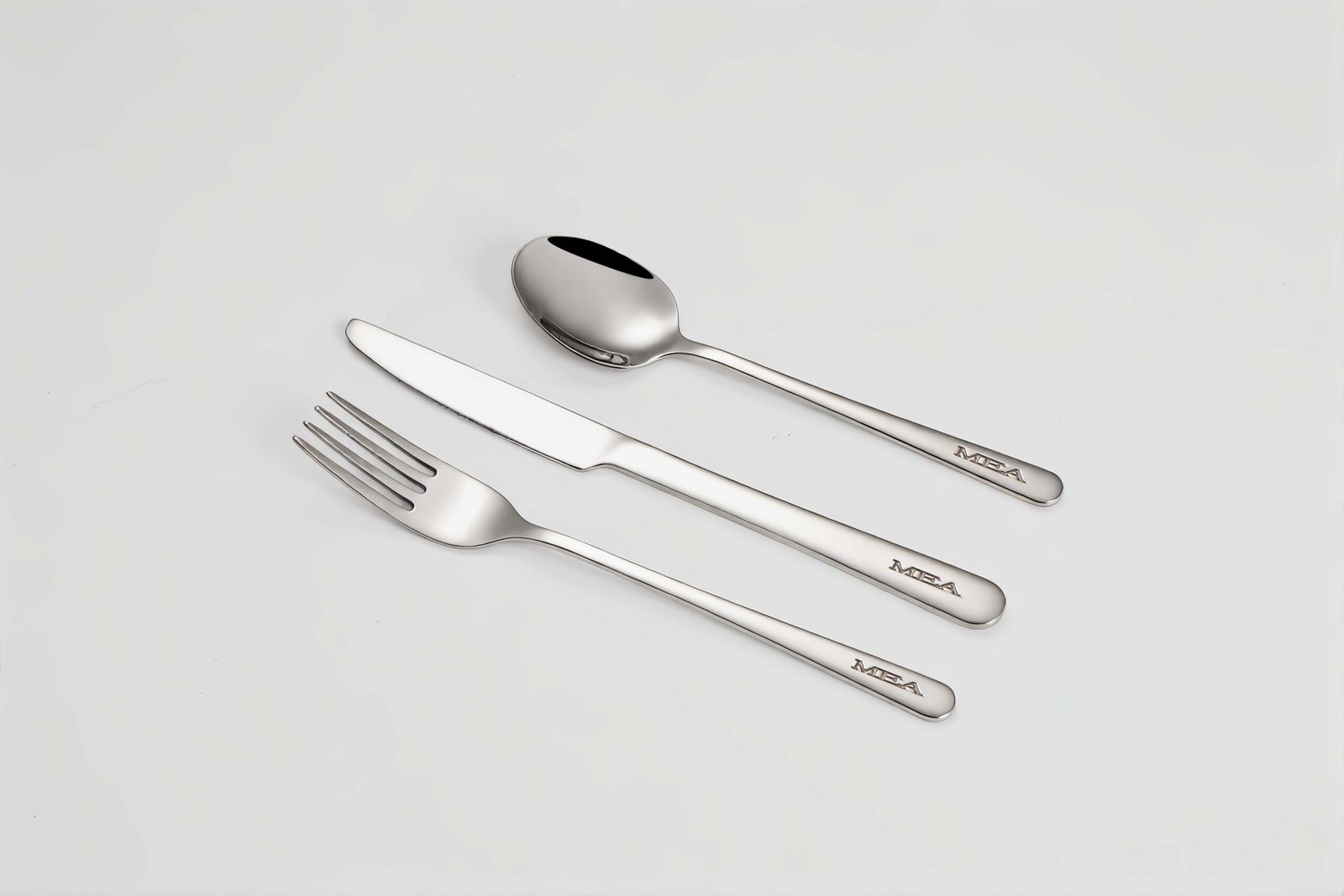Looking for the best stainless steel cutlery can be overwhelming with so many options. Let me guide you through what makes cutlery truly exceptional.
The best stainless steel cutlery is defined by a mix of material quality, design, and functionality. High-quality stainless steel ensures durability, rust resistance, and an elegant finish.
But choosing the right stainless steel cutlery isn’t just about the material; it’s also about understanding your specific needs, preferences, and the context in which you’ll use the cutlery. Let’s dive deeper into the factors that matter the most.
What Makes Stainless Steel Cutlery Stand Out?
Not all stainless steel cutlery is created equal. Understanding the differences can make or break your decision to buy the best set for your needs.
Stainless steel cutlery stands out due to its corrosion resistance, durability, and aesthetic appeal. Higher grades of stainless steel are known for superior performance and longevity.
When looking at stainless steel cutlery, it’s important to pay attention to the grade of stainless steel used. Grades such as 18/10 and 18/8 are commonly seen in high-end cutlery. The “18” refers to the percentage of chromium, which provides rust resistance, while the “10” or “8” refers to the percentage of nickel, which adds to the cutlery’s shine and resistance to corrosion.
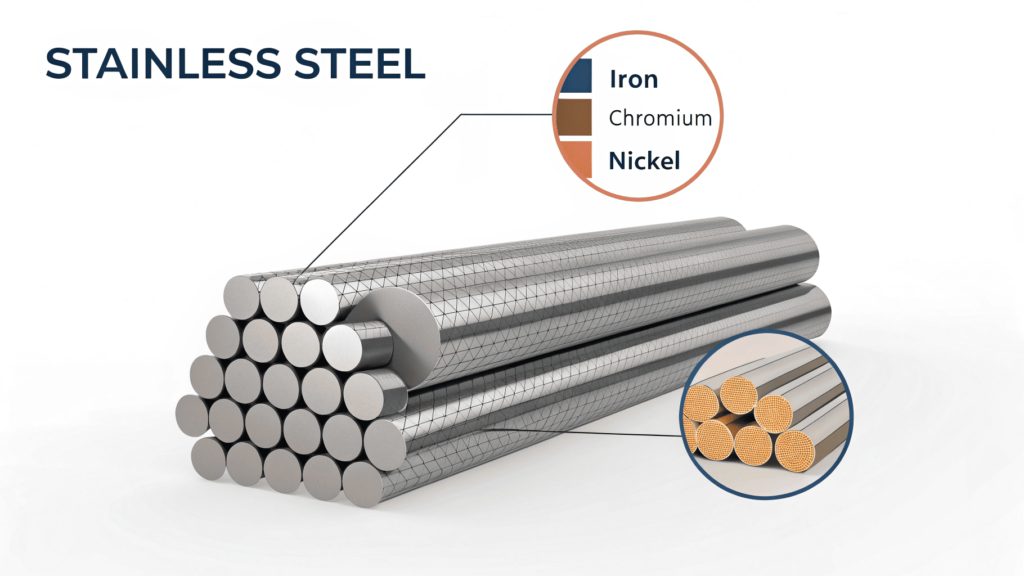
Factors Affecting Quality
| Factor | Impact on Quality |
|---|---|
| Chromium Content | Higher chromium content boosts rust resistance and durability. |
| Nickel Content | Adds strength, resistance to corrosion, and a polished look. |
| Carbon Content | More carbon gives steel more strength but reduces corrosion resistance. |
This table helps highlight the key ingredients that define high-quality stainless steel. For instance, 18/10 stainless steel is often used for luxury brands due to its balance of durability, resistance, and aesthetic appeal. On the other hand, lower grades like 18/0 are more affordable but may lack long-term durability and rust resistance.
Thus, choosing the best cutlery involves balancing these factors to suit your needs—whether you prioritize longevity, design, or cost-effectiveness.
How to Identify High-Quality Stainless Steel Cutlery?
Knowing how to spot high-quality cutlery can save you money and headaches in the long run. Here’s what you should look for when selecting stainless steel cutlery.
High-quality stainless steel cutlery can be identified by its weight, finish, and feel. Check the grade of steel, and remember that a polished look is often a sign of higher quality.
The weight of stainless steel cutlery is often a direct indicator of its quality. Heavier knives, forks, and spoons usually indicate thicker, more durable steel. The finish of the cutlery is another essential aspect, with mirror finishes indicating a more premium product.
Surface Finish Comparison
| Finish Type | Characteristics |
|---|---|
| Mirror Finish | Shiny and reflective, requiring more maintenance but looks elegant. |
| Satin Finish | Matte finish, easier to maintain and resists fingerprints. |
| Brushed Finish | Offers a soft glow, hides scratches well, and is easier to clean. |
The finish is not just for aesthetics; it affects how the cutlery resists stains, fingerprints, and scratches. A polished finish, while beautiful, can show wear over time, while a brushed or satin finish might be more practical for everyday use.
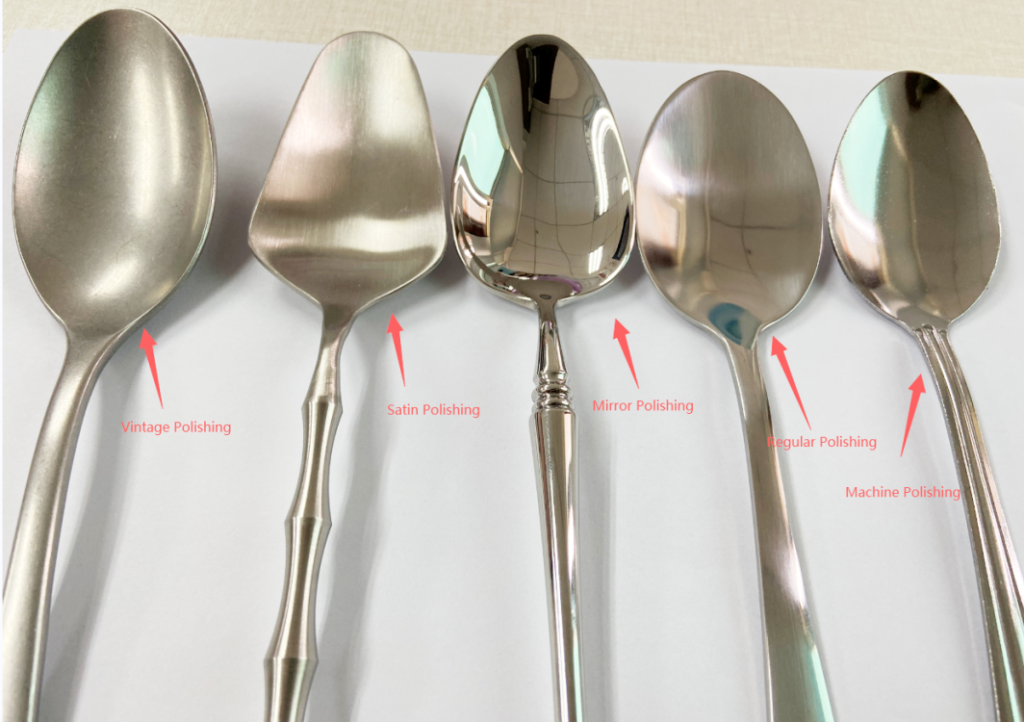
What Should You Consider Before Buying Stainless Steel Cutlery?
Choosing the best stainless steel cutlery means taking several things into consideration beyond just the look and feel. Let’s take a step back and assess these factors carefully.
Before buying stainless steel cutlery, consider factors like the cutlery’s intended use, the material grade, your budget, and how easy it is to maintain. These elements will guide you toward the best set.
When purchasing stainless steel cutlery, consider the practical aspects such as maintenance, weight, and the types of food you’ll be using it for. If you’re buying cutlery for a restaurant or hotel, you might want durable and easy-to-maintain pieces that can withstand frequent washing. On the other hand, if you’re investing in a set for home use, aesthetic appeal and comfort in hand might weigh more heavily.
Maintenance Tips for Stainless Steel Cutlery
| Maintenance Tip | Benefit |
|---|---|
| Hand wash after use | Prevents staining and keeps shine. |
| Avoid abrasive sponges | Protects the finish and avoids scratches. |
| Dry immediately after washing | Prevents water spots and rust formation. |
Taking proper care of your stainless steel cutlery can extend its lifespan and keep it looking as good as new. Proper maintenance should be a priority for anyone who wants to enjoy the best cutlery for years.
What is the Best Grade Stainless Steel Cutlery?
Selecting the right grade of stainless steel is crucial for ensuring your cutlery lasts and performs well. But how do you choose the best one?
The best grade of stainless steel for cutlery is typically 18/10, which offers superior rust resistance and durability. It’s ideal for high-end cutlery sets.
Stainless steel grades can be confusing, but understanding them is key to choosing the best cutlery. Stainless steel is often classified by the percentage of chromium and nickel it contains.
Key Stainless Steel Grades
| Grade | Chromium Content | Nickel Content | Key Features |
|---|---|---|---|
| 18/10 | 18% | 10% | Superior corrosion resistance, great shine. |
| 18/8 | 18% | 8% | Slightly less durable, more affordable. |
| 18/0 | 18% | 0% | Affordable but less resistant to rust. |
The 18/10 grade is the most commonly used for high-quality cutlery due to its balance of durability, resistance to corrosion, and aesthetic appeal. The higher the nickel content, the shinier and more resistant to rust the cutlery will be.
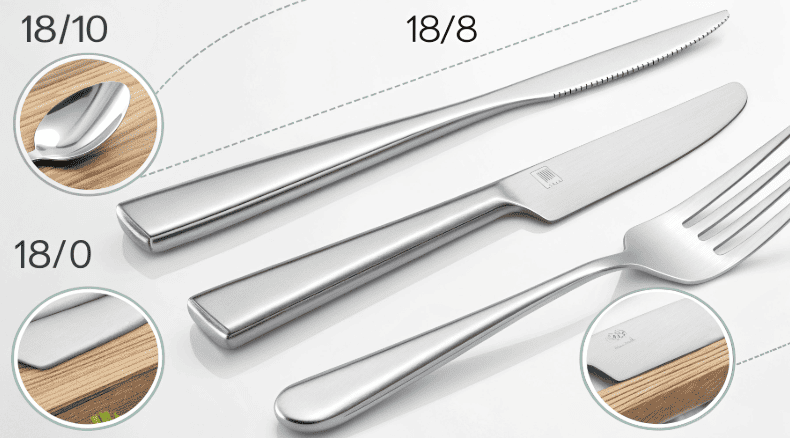
What Should I Look for When Buying Stainless Steel Cutlery?
When buying stainless steel cutlery, it’s essential to understand the elements that contribute to its performance and longevity. Let’s break down the most important factors.
Look for stainless steel cutlery that balances material quality, design, functionality, and price. Quality cutlery will last longer and provide an enjoyable eating experience.
When buying stainless steel cutlery, you should consider factors like the grade of stainless steel, the design, weight, and how it fits in with your needs.
Important Buying Factors
| Factor | What to Look For |
|---|---|
| Grade of Steel | Higher grades like 18/10 for durability and resistance to corrosion. |
| Weight | Heavier cutlery often signals better quality and sturdiness. |
| Design | Choose based on aesthetic appeal and ergonomic comfort. |
| Price | Set a budget based on desired quality and durability. |
Weight and design are critical for comfort and usability. A well-designed fork or knife that feels balanced in your hand can make a significant difference when eating. Additionally, consider how easy it is to maintain. Stainless steel cutlery that resists stains and doesn’t show fingerprints will save you time cleaning.
What is the Stainless Steel Flatware Considered to Be Top Quality?
When it comes to flatware, quality means much more than just appearance. It’s about durability, functionality, and how the material performs over time.
Top-quality stainless steel flatware typically comes in 18/10 stainless steel, offering excellent resistance to rust, corrosion, and staining while maintaining its shine over time.
High-end flatware is often made from 18/10 stainless steel due to its resilience and aesthetic appeal. Flatware that resists rust, staining, and corrosion is a sign of quality, which is why this grade is commonly used in fine dining settings.
Why 18/10 Stainless Steel is Preferred
| Reason | Explanation |
|---|---|
| Durability | 18/10 stainless steel resists rust and corrosion, ensuring longevity. |
| Shine | The high nickel content gives it a polished, shiny finish. |
| Maintenance | Easier to clean and maintain, keeping its appearance fresh. |
In high-quality flatware, not only does the material matter, but the design and finish contribute to the overall experience. The shine and weight make the eating experience feel more luxurious, while the durability ensures that the flatware stands up to frequent use.
How to Choose the Right Cutlery Supplier for Your Business?
Selecting the right cutlery supplier is a critical step for ensuring you receive high-quality products that align with your brand. Let’s go over some key tips.
When choosing a cutlery supplier, look for manufacturers that offer consistent product quality, reliable delivery times, and great customer service.
Choosing a cutlery supplier involves evaluating several factors to ensure you’re getting the best products for your business needs.
Key Considerations for Supplier Selection
| Factor | What to Look For |
|---|---|
| Product Quality | Consistency in material quality and manufacturing standards. |
| Lead Time | The supplier’s ability to meet your delivery deadlines. |
| Customer Service | How responsive and helpful the supplier is during the order process. |
| Customization Options | Ability to customize products to meet your business’s needs. |
A good supplier will work with you to meet your specifications and timelines. It’s essential to choose a supplier that provides clear communication and has a proven track record of delivering products on time.
Key Considerations for Importing Stainless Steel Cutlery
Importing stainless steel cutlery requires understanding logistics, quality control, and trade regulations. Let’s explore what you need to keep in mind.
When importing stainless steel cutlery, ensure you’re aware of tariffs, shipping costs, and quality control procedures to guarantee a smooth process.
Importing stainless steel cutlery involves navigating through the complexities of international trade, from ensuring compliance with import regulations to managing the logistics of getting products from one country to another.
Key Factors for Successful Importation
Here’s the table with your updated information:
| Factor | What to Consider |
|---|---|
| Tariffs and Duties | Be aware of the import duties in your country, which can significantly affect costs. |
| Shipping Costs | Factor in the costs of shipping and handling to avoid unexpected expenses. |
| Quality Control | Make sure the supplier meets your quality standards, and inspect goods before shipping. |
| Documentation | Ensure all necessary paperwork, such as certificates of origin, is in order for smooth customs clearance. |
Being aware of these factors will help streamline the import process. By understanding the additional costs and regulations, you can better plan for a successful business transaction without unexpected delays or costs.




